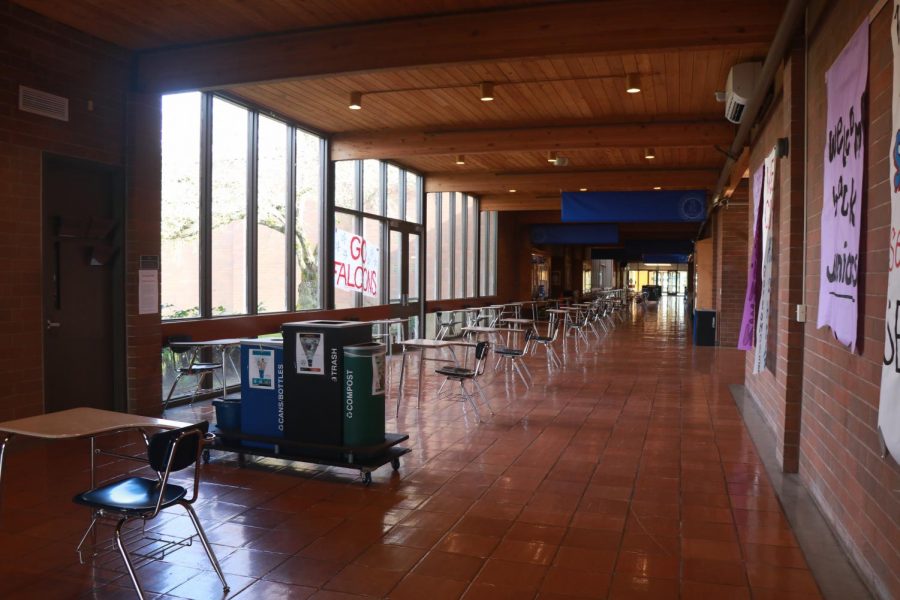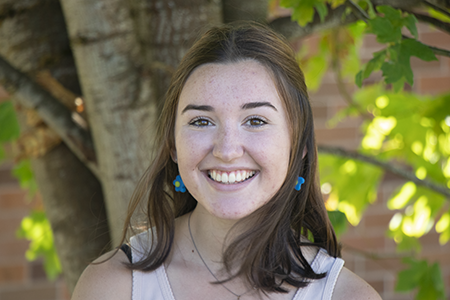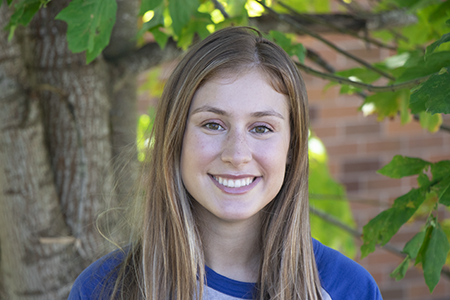Wear Your Mask, Maintain a Six-Foot Distance, and Continue Taking This Pandemic Seriously
As we begin to return to “normal life,” it is our responsibility to do things safely. Disregarding guidelines about COVID-19 — inside and outside of La Salle — is an abuse of privilege, and promotes an unsafe environment that forces people to stay isolated.
March 3, 2021
It’s been almost a full year since we went into lockdown and our lives became engulfed by the pandemic that has struck the nation — and the world — with physical, economic, and social loss.
The U.S. death toll has climbed past 500,000 — half a million people have died because of the drastic effects of the coronavirus pandemic.
Many people of different ages and careers have had to adapt or have struggled during the pandemic. People have lost their jobs. People have lost their homes. And people have lost their family members.
Students have been out of school, glued to screens and missing their friends. Essential workers have been risking their health in order to improve ours.
COVID-19 has affected minorities and people of color severely and disproportionately. There have been racial gaps related to a multitude of social inequities such as access to healthcare, exposure to the virus, and occupation.
To truly reflect on what it means to have a year of our lives spent in isolation is an overwhelming task. It’s fair to say we all want nothing more than to take back the loss of lives, socialization, and education.
We all want the pandemic to be over. But it’s not. And it won’t fully be for a while, which is just reality. We must continue adapting.
Throughout the past year, as research has been released on preventing the spread of COVID-19 and we have all become accustomed to CDC guidelines to keep ourselves and others safe, little pieces of normalcy have crept back into our lives at La Salle.
Some athletes can go to practices. Thespians returned to the stage. Student leaders are back in the building to connect with the student body.
And now, some students are entering hybrid learning after spending many months in front of Zoom — some classmates on mute, with their cameras off, and only a name to remind us of the community we’ve been apart from.
We, as high school students, are very fortunate to not be affected by the virus as significantly as older age categories or those who are immunocompromised. Contracting COVID-19 may not be fatal to us, or to our teachers who have been able to receive the vaccine.
For some individuals who are returning to campus for various reasons, whether it be a sports practice, to connect with others, or academic benefits, strictly following the CDC guidelines may not be a priority as the virus itself might not feel like a huge concern.
This lack of concern is a privilege. And it’s a privilege that so many others do not have.
As we continue on our path back to “normalcy,” we have to consider those in circumstances that prevent them from participating in certain things. Those who are in close contact with grandparents or someone who is immunocompromised. Those whose mental health has been hurt by the pandemic. Those who simply have different comfort levels than others.
La Salle students are lucky to have the opportunity for hybrid learning, as many other schools are still learning from home.
To ignore the members of our community who are not yet able to return to normalcy is insensitive and inconsiderate.
That’s not to say there is a dire need for activities to be canceled, or for La Salle to close because of these individuals. But if we are to do something, we must do it the right way to ensure safety for everyone in the community.
The choices we make can affect our neighbors, friends, family members, and loved ones.
Wear your mask correctly. It’s not hard. Use sanitizer and wash your hands. Don’t be careless by attending parties or hanging out in large groups with no social distancing in place — keep your distance and maintain a small social bubble. Avoid crowds and poorly ventilated spaces.
Follow the CDC guidelines, and do things the right way the first time around. Don’t wait for a positive COVID-19 case in our community to start taking things seriously. Take responsibility for your own actions, and aim to foster an environment that helps others to feel safe.
There are proven preventative measures that reduce the transmission of the virus — so take advantage of them. If we want to continue having on-campus opportunities, we all need to do our part and be sensitive to those in circumstances different than our own.
Being able to play sports, experience hybrid learning, and get pieces of our life back is a privilege, and we have to acknowledge it. When we acknowledge it, we can more easily empathize with our peers and understand the impact our actions have on others.
As the people who are returning to a “normal life,” it is our responsibility to do things safely. Disregarding guidelines about COVID-19 — inside and outside of La Salle — is an abuse of privilege, and promotes an unsafe environment that forces people to stay isolated.
The common experience that we have gone through in the past year has divided us by more than a six-foot distance, and will only continue to divide us more unless we remember to empathize with our peers and let our actions show our concern for health and the community.
At the end of the day, many people are still suffering. Take precautions, and make small sacrifices. It benefits us all.
If you take anything away from the pandemic thus far, let it be selflessness. Remember that your actions impact others — so act accordingly. Be considerate to those in circumstances both similar and different to your own, and do not take for granted the opportunities you have by disregarding the practices and guidelines that keep us all safe.






